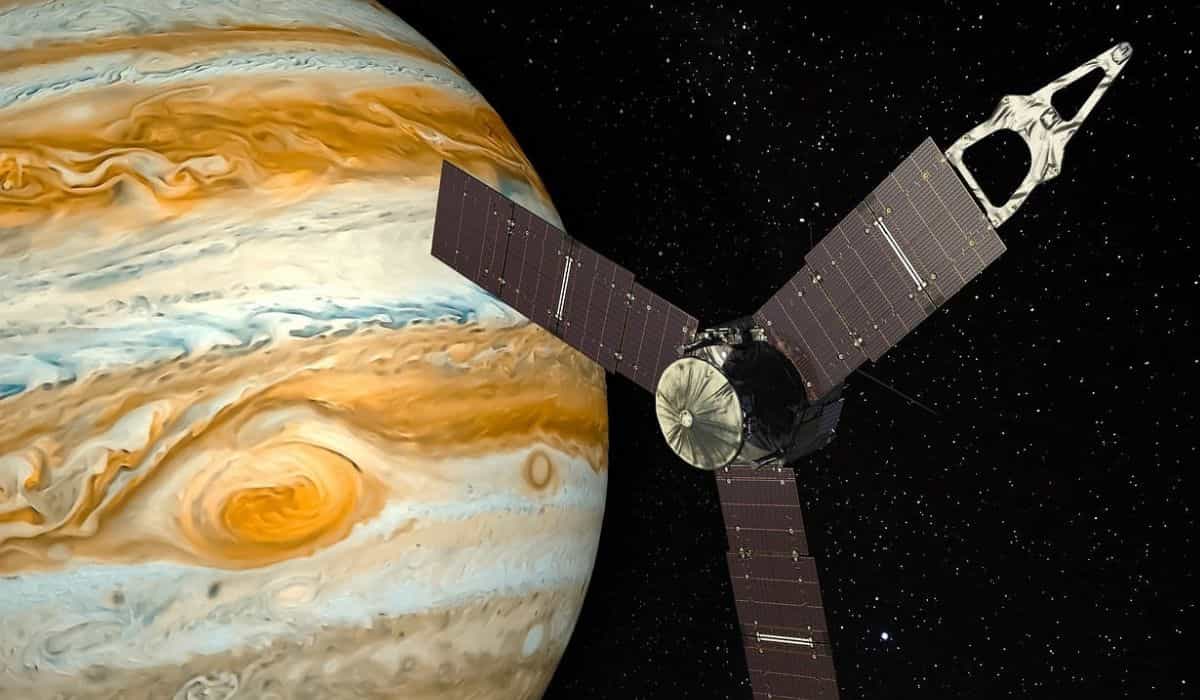
The Juno probe, from NASA, responsible for orbiting and observing Jupiter, recently conducted a flyby of one of the planet’s famous moons, Io.
+Check out amazing photos of the solar eclipse seen from space
+NASA Highlights Cosmic Beauty of the ‘Veil Nebula’
The probe took new snapshots of one of Jupiter’s more than 90 known natural satellites, revealing more details of Io’s surface. These new images of the largest planet in our Solar System were shared by one of NASA’s profiles on the platform formerly known as Twitter.
Io was discovered by Galileo Galilei in 1610 and is one of the most intriguing objects in the Solar System due to being the most volcanically active moon in this group of celestial bodies influenced by the Sun. Io has hundreds of active volcanoes, a thin atmosphere primarily composed of sulfur dioxide, and a colorful surface due to the presence of sulfur and other minerals.
Jupiter’s moon Io, the most volcanically active world in the solar system, as seen by the #JunoMission on Oct. 15. More at https://t.co/Ql7aCQvRqY
📸 Processed by Kevin M. Gill https://t.co/rVgUz5mLtb pic.twitter.com/ntVWdJcZbZ
— NASA Solar System (@NASASolarSystem) October 17, 2023

